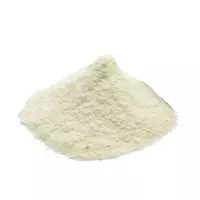Baby formula

Today, increasingly, mothers face the question of natural or artificial feeding of their child. This is due to the constant employment of modern businesswomen, who, in pursuit of independence and the accumulation of material values, sometimes refuse their child and invaluable breast milk. In addition, it happens when natural feeding is not possible due to the fact that in view of certain factors, this milk disappears in a woman.
In such situations, infant formula, which are substitutes for breast milk, comes to the rescue. They are manufactured industrially in accordance with the relevant standards. Infant formula is able to meet the normal nutritional needs of babies from birth to six months. Such nutrition is considered adapted to the physiological features of the infant.
Types of infant formula
First of all, speaking of the types of infant formula, it should be borne in mind that they are produced in 3 forms: dry powder, to which you need to add water, liquid concentrate (diluted in half with water), as well as a ready-to-use liquid product that can be immediately poured into a bottle.
In addition, two main types of infant formula are distinguished, based on their composition: dairy and dairy-free. The first are produced on the basis of cow or goat milk and are adapted, that is, animal proteins are excluded from the composition of such a product, which are absorbed too hard by a child of infancy.
For children with protein intolerance to cow's milk or casein, dairy-free infant formula has been specifically developed. They contain the same nutrients as conventional adapted mixtures, with the exception of milk whey, which uses soy protein instead.
There are also fermented milk infant mixtures which are used as an adjunct to a conventional adapted mixture. They contribute to the prevention of constipation, so can be used as the main type of infant formula, in the case where the child has a constant problem with stool retention.
Special medical and preventive infant formula is needed in baby nutrition to correct and treat various disorders in the development of babies.
Composition of infant formula
Milk-based infant formula contains casein or whey protein. In addition, such an important component as lactose or milk sugar can be found on the food packaging. This is a fairly important carbohydrate that must be present in the diet of a child of the first year of life.
In addition to these substances, taurine, linoleic acid, dextrin maltose, probiotics, prebiotic fibers and starch are present in the composition of infant mixtures. Modern adapted mixtures also have copper, zinc, selenium, manganese and iodine important for a child's growth and development.
Harm to infant formula
Any baby food that is synthesized artificially is not able to fully replace breast milk. The harm of infant formula lies in the possible risk of developing intestinal and other types of disorders of the baby's digestive tract, since it is quite difficult to create completely sterile conditions for preparing the product and feeding. In addition, for some countries, the problem of water quality, which is used to dilute the powder, is relevant.
infant formula 545 kCal
Energy value of infant formula (Ratio of proteins, fats, carbohydrates - ju):
Proteins: 4.79 g (~ 19 kCal)
Fats: 35.48 g. (~ 319 kCal)
Carbohydrates: 54.88 g (~ 220 kCal)
Energy ratio (b | y): 4% | 59% | 40%
 Español
Español Français
Français Português
Português Русский
Русский 简体中文
简体中文 繁體中文
繁體中文 日本語
日本語 한국어
한국어 العربية
العربية Türkçe
Türkçe Қазақ
Қазақ Deutsch
Deutsch Italiano
Italiano Українська
Українська
